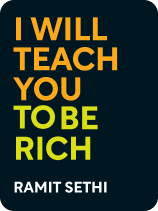

This article is an excerpt from the Shortform book guide to "I Will Teach You to Be Rich" by Ramit Sethi. Shortform has the world's best summaries and analyses of books you should be reading.
Like this article? Sign up for a free trial here .
Does thinking about your personal finances make your palms start to sweat? Do you often find yourself wondering where your paychecks go?
If so, you’re not alone. The sheer amount of information out there about managing your finances is overwhelming, especially for people in their 20s and 30s who are just starting their financial journeys. Not only is there an insane amount of money management advice out there, much of it—like “just stop buying lattes”—is completely unhelpful.
In this article, we’ll take a look at the most common excuses people make for not being able to manage their money responsibly, how to avoid them, and how defining your “rich life” can help you take control of your finances.
Common Excuses for Not Managing Money (and How to Avoid Them)
As a financial educator, Ramit Sethi has heard every excuse in the book for why his system can’t possibly work for someone because of their individual circumstances. And while there are structural inequalities that give some people an unfair financial advantage over others, the fact that there are some factors you can’t control isn’t a valid excuse for ignoring what you can control.
- For example, if you work at a minimum wage job, it might be much harder for you to save money than it is for someone with a trust fund. And while you can’t change that unfair advantage, you can decide whether to use it as an excuse not to try or to refocus on whatever factor you can control—even if that’s just something as small as automating your credit card payments so you never face another late fee.
Over the years, Sethi has learned that many people don’t want to hear that logic—they’d rather make excuses than take control of the problem. Most of these excuses fall into two categories: decision paralysis and blaming the system.
Decision Paralysis
Information is helpful, but too much information can easily distract and overwhelm us. If you are like most people, when you decide to take control of your finances, you feel like you can’t (or shouldn’t) make financial decisions until they have all the information. However, the opposite is true: The more information you have, the less likely you are to act on it. This is called decision paralysis.
Thankfully, all you really need to know are the basics of financial health that you’ll learn in this summary; any information beyond that will just add to the confusion and overwhelm many of us feel when it comes to finances. It’s normal to be nervous about making a mistake, but at this stage in your financial journey, remember that the worst possible mistake you can make is not getting started at all. If you start investing early (ideally before age 35), you’ll be better situated in the long run than someone who waited until age 45 to invest—even if you make a few mistakes along the way.
- If you’re older than 35 and just getting started with investing, don’t let this information scare you off. When it comes to investing, starting early is best, but starting now is far better than not starting at all.
Blaming the System
American socioeconomic policies have created a deeply unequal economic situation in which people who are born into privilege have an unfair advantage over everyone else. While those issues are real and important, they’re outside of anyone’s individual control—so when it comes to growing your own wealth, it’s much more productive to focus on what you can control than to fall back on blaming the system. Here are some of the common excuses people use for giving up on trying to improve their financial lives:
- “My situation means I can’t save.” Your situation may be difficult, and you may not be able to save as much money as other people in the same amount of time, but you can still save some. The important thing is not to use your situation as a reason not to try at all.
- “This financial system won’t work because the society is unfair.” Sometimes, that’s true—the American socioeconomic system is deeply unfair. However, if your goal is to increase your wealth, it doesn’t help to focus on those larger issues that you can’t control. Instead, focus on what you can control; no matter how insignificant it might feel, you’ll always be better off than if you didn’t try.
- “If they’d taught this in school, I’d be better off by now.” If you went to college, they probably did teach personal finance classes, even if you didn’t take them.
- “Financial institutions prey on their customers.” That’s true, and it’s what they’re designed to do. But like any other situation we can’t control, it’s best to move on and focus on the things we can control instead of getting bogged down in anger or helplessness.
- “I can’t afford to get it wrong and end up worse off.” Investing can be scary, especially for people who’ve lived through global economic recessions. However, remember that investing is about long-term wealth—you don’t need to worry about the market fluctuating in the short term so long as there’s even modest long-term growth. If you’re especially nervous, remember that not all investments are equally risky, so you can always put your money in very conservative, low-risk options.
- “I have no way to make extra money to invest.” That’s okay—you don’t need to. Instead of bringing in more money, this book will focus on cutting your existing costs to free up money to invest.
- “I want really impressive returns, not average ones.” When it comes to investing, average is actually the best place to be: You’ll have less risk, avoid unnecessary fees, and still make a solid profit at the average 8% rate of return.
To get the most out of this book, we need to move past these excuses and focus on taking small steps toward financial success. Here are the key ideas to keep in mind as you read:
- “Good enough” is better than perfect. If you can get started with managing your money and get it right most of the time, you’ll still be richer than if you don’t start at all.
- Get comfortable with making mistakes so that you can learn from them.
- Understand your priorities so you can spend money on the things you love—guilt free—by economizing on things that don’t matter to you. The goal of this book is to help you live your version of a rich life, including spending money on whatever means most to you.
- Embrace “boring” when it comes to your financial life. You won’t become a venture capitalist just by following Sethi’s advice, but you’ll consistently grow your money with far less risk.
- The goal of accumulating wealth is to free you up to focus on things other than money. The more hands-off your financial system, the more you can focus on more important things in life than spreadsheets.
- Be proactive with your finances. Instead of passively accepting things like bank fees, make the effort to deal with them now and save yourself thousands in the future.
What Does a “Rich Life” Mean to You?
Being “rich” means something different to everyone. Your version of rich may look like taking lavish vacations every year, or financing your parents’ retirement, or donating huge sums to charity. In any case, having a clear vision of what a rich life means to you will help you define your goals and make financial decisions that will help you get there. We’ll cover specifics later on, but in general, here are Sethi’s 10 rules for a rich life:
- Spend freely on things you love by cutting costs on things you don’t.
- Focus on the five to 10 things that will have the biggest impact on your financial situation instead of getting bogged down in specifics.
- Think of investing as a long-term strategy. You won’t be seeing huge returns right away, but over time, you’ll be better off than people with more “exciting” investments.
- Reducing your spending is helpful, but there’s only so much you can cut. Instead, focus on maximizing your earning potential.
- Ignore financial advice from friends and family. Everybody has conflicting ideas, and getting bogged down in those perspectives will just add to the confusion and decision paralysis.
- Create your own spending rules, including what you will spend on, not just what you won’t. For example, one of Sethi’s personal rules is that if he wants to buy a book, he does—no second guessing, no questions asked. Books are something he allows himself to spend extravagantly on no matter what because he knows he’s cutting the costs in other areas to make that possible.
- Don’t worry about “advanced” tips. Just stick to the basics. You’ll make more progress by consistently focusing on the “boring” rules than wasting time on advanced tips, just like you’ll make more progress as a runner by going for a jog than spending hours comparing different brands of running shoes.
- Focus on what you can control instead of complaining about what you can’t.
- Create the life you really want, not what you think a rich life should be—even if that’s wildly different from other people’s definition of success.
- Do the work now so that your money takes care of itself while you focus on living your best life.

———End of Preview———
Like what you just read? Read the rest of the world's best book summary and analysis of Ramit Sethi's "I Will Teach You to Be Rich" at Shortform .
Here's what you'll find in our full I Will Teach You to Be Rich summary :
- The small steps you can take towards living a "rich life"
- How to choose the right bank account and manage your credit cards
- How to create a financial system that grows your money automatically






